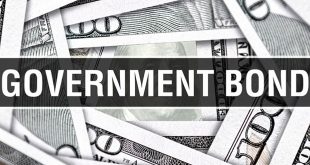The only significant central bank meeting this week, that of the Bank of Japan, is anticipated to end without a change in monetary policy following the BoC’s rate decision on Wednesday. Nonetheless, there are several elements that might distinguish the meeting event.
Hikaru Kuroda, governor of the Bank of Japan, who oversaw over ten years of ultra-easing policies, will serve as the meeting’s chair for the last time. There isn’t expected to be a change in policy during his final meeting, which also happens to be the final meeting for two of the deputy governors. This leaves the next governor in charge of changing the BoJ’s course.
There has been a lot of talk about Kazuo Ueda being officially named the new governor of the BoJ on Friday. His remarks thus far have been quite circumspect, underlining the need to uphold current practice while leaving room for future modifications. After he is officially hired, investors will be watching closely to see if his approach and perspective alter.
Currently stabilizing near three-month highs of 137.50, the USD/JPY pair has increased by 0.17% today. At the time of writing, the pair is trading at 137.22. It appears to be gaining from higher US Treasury bond yields as ardent expectations for a rate hike following Chair Jerome Powell’s appearance before Congress soar to new heights.
The recent selection of Kazuo Ueda to the position of Bank of Japan governor, taking Kuroda’s place as the new representative of Japanese monetary policy, has drawn a lot of attention. When it comes to the possibility of potential policy changes, Ueda has often painted a balanced picture in the criticism surrounding him.
This would imply that there won’t be any immediate modifications to the current yield curve control (YCC) programme. The most recent Reuters poll, released early on Wednesday, predicted that the Bank of Japan (BoJ) will cease its long-term yield control strategy this year. The 26 respondents to the study conducted from February 28 to March 6 believe that the complex easing plan would be dismantled and the bond market will once again function under the new leadership of scholar Kazuo Ueda.
Given that this will be Kuroda’s last meeting in his capacity as governor of the central bank, it begs the issue of whether he might begin laying the foundation for a change in policy in the following months. With 4.3%, Japanese inflation is already far higher than desired and appears to be going up.
It’s difficult to imagine a situation in which the Bank of Japan would be content with a rapidly increasing inflation rate and a currency that is once again wilting under the pressure of a strong US dollar.

Japan
 Noor Trends News, Technical Analysis, Educational Tools and Recommendations
Noor Trends News, Technical Analysis, Educational Tools and Recommendations




